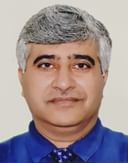Dysphagia - Know More About It!
Ever had tempting food calling out to you but could not to swallow it? This could be a serious medical condition and should not be taken lightly. Sometimes, certain disorders in the throat or the esophagus culminate in acute difficulties in swallowing. Commonly termed dysphagia, this disease is directly linked to some sort of a neuro-cardiac abnormality. Dysphagia is commonly noted in babies and aged people or in other words in those age groups whose immunity systems are not necessarily strong. Occasional troubles in swallowing can go unnoticed and may not necessarily raise the alarm, but if this condition prevails for a comparatively long period of time, then one really needs to get themselves checked. Some of the most prominent causes of dysphagia have been enlisted below.
Muscular and nervous dysfunctions
On certain occasions, the nerves and the muscles that are responsible for transporting food through the food pipe may not be functioning properly. As a consequence of which, food particles find it difficult to navigate through the esophagus and reach the stomach. Such a condition may be spurred by a stroke or nervous diseases like Parkinson's, sclerosis or dystrophy. A weak immunity system, leading to an inflammation and thus narrowing of the esophageal walls may also cause such a disease.
Gastronomical distresses
Ulcers or inflammation of the food pipe due to some gastroentric disorders is also a cause of dysphagia. Such a condition may arise out of innocuous situations like an allergic reaction or on account of more chronic medical distresses like cancers and tumors.
Dryness inside the mouth
The saliva in the mouth helps in debilitating the food particles into digestible form. However, due to some kind of a hormonal imbalance, if there isn't adequate saliva formation, it becomes a task to swallow the food and results in dysphagia.
With timely diagnosis, dysphagia can be treated effectively. Treating dysphagia usually involves a few clinical methods as well as a few lifestyle changes. Certain specialists advice exercising the throat muscles that can possibly ease out swallowing while others recommend specific changes in the diet for the same. Surgical procedures involve dilation and endoscopy which clears out the surface area of the esophagus as a result of which heals dysphagia to a great extent.



+1.svg)
